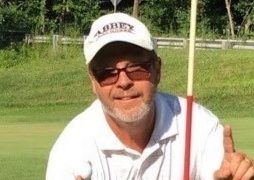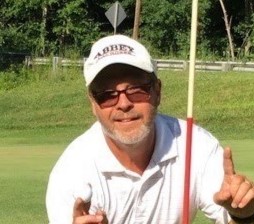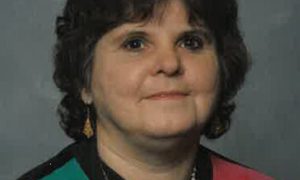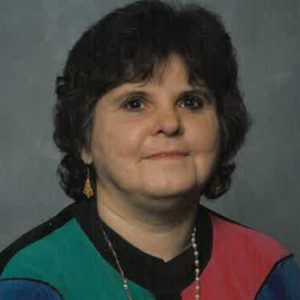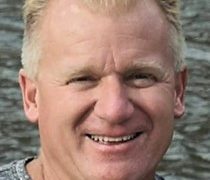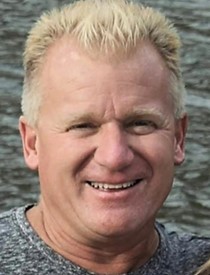WESTFIELD-For Heather Smith, March 28, 2018 was a defining moment in her life.
“I tried to kill myself,” said Smith during a recent morning conversation at the Safe Haven Program on Broad Street. “I only had the clothes on my back, I had nothing. I didn’t feel good and I ran out of fight.”

Olivia Bernstein, program supervisor for Safe Haven, a program of MHA, on right, supports Heather Smith, a participant in the transition program.
Then a miracle happened.
Samantha Gulsvig, a human rights officer for the Mental Health Association (MHA) Safe Haven Program, was approached by individuals at the Samaritan Inn in Westfield where Smith was staying.
“People were concerned about Heather and asked if I could see if she would qualify for the Safe Haven program,” said Gulsvig.
With Gulsvig as a “voice” for Smith, she was approved for the program by the state Department of Mental Health.
“I stopped using drugs on March 28,” said Smith.
With September being observed as National Recovery Month, Smith wanted to share her message with others in the hope of helping individuals who might be facing a similar situation as hers.
After years of chronic homelessness and substance abuse including using heroin and crack cocaine, as well as receiving a bipolar diagnoses at age 14, Smith, now 33, has found a home in the city where she is safe and can thrive.
“I had lived on the streets since I was a teenager in the Greater Westfield area,” said Smith, noting her homelessness started after her mother died. She also left home because of her father who was an alcoholic.
“It was horrible at that time,” said Smith. “I was running from everything horrible about life which was better than living in fear.”
Smith noted that from the moment she walked in the door at Safe Haven, a “weight” had been lifted off her shoulders.
“Everyone here is phenomenal,” said Smith, noting that previous programs she had been in made her feel “just like a number.”
“I feel the staff here want to see you succeed and will help you every step of the way,” she added.
MHA, founded in 1960 by concerned citizens to provide advocacy for people with mental illness living at Northampton State Hospital, has since flourished and now operates programs in 25 residential sites, offering a multitude of housing options and support services to encourage the greatest level of independence in the least restrictive setting. The housing models and services range from 24-hour staffed programs to independent living. MHA’s services are organized into two programmatic divisions – the Division of Recovery and Housing and the Division of Developmental Services.
Kimberley Lee, MHA’s vice president of resource development and branding, noted that the state Department of Mental Health approved funding in 2016 for MHA to create a Safe Haven program in Westfield for seven individuals. State funding provides an alternative for chronically homeless individuals whose symptoms of mental illness make it difficult to use traditional shelters.
The Safe Haven program is staffed 24 hours a day, seven days a week, and offers assistance with meaningful benefits, community re-entry skills, medication management, substance abuse services, crisis intervention and planning for permanent housing.
Safe Haven participants are expected to transition to permanent, supportive housing within two years, according to Olivia Bernstein who serves as the site’s program supervisor.
“Heather is doing amazingly well here,” said Bernstein, adding, “She has the drive and motivation to complete her goals and is excellent at advocating for herself.”
Gulsvig concurred.
“My role as a human rights officer for MHA ensures that all participants have a voice and they are heard,” said Gulsvig, noting her time spent with Smith includes ensuring she has the extra services she needs while attending Holyoke Community College.
“I will major in psychology because ultimately I want to work with young adolescents and teens,” said Smith.

Heather Smith, a participant in MHA’s Safe Haven program, surrounds herself with words of inspiration – including her own writings.
Colleen Keaveney, Safe Haven’s residential stabilization specialist, is also an integral part of Smith’s care team.
“We work with Heather in getting her life ready for the time when she will transition out of the program,” said Keaveney. “From activities of daily living to learning about disability accommodations available to her, we want her to excel and we are always talking and listening to each other.”
Also joining the conversation was Lisa Gelinas, program director for recovery and housing, who also has been engaged in conversation with Smith since her arrival.
“I encourage Heather to reach out to the staff when she is struggling with something,” said Gelinas, noting that all staff members take a “very hands-on approach” to care.
Mark Goodwin, who serves as the state Department of Mental Health Westfield site director, noted his role is to oversee contracts with providers including MHA.
“The program here is exciting,” said Goodwin, adding the program “has flexibility to meet the unique needs of participants and to help them return to independent living.”
Goodwin also had met Heather at the Samaritan Inn and was “impressed” by her willingness to turn her life around.
“She was sincere and afraid of where she was going,” said Goodwin. “I was grateful we had a place for her here. She has done a great job in her recovery.”
While Smith has months to excel at Safe Haven with a dedicated staff at her side, Tim Dudley, 48, transitioned from the program last fall and stopped in to add some reassuring words for Smith.
“After years of abusing alcohol and drugs, I saw the light at the end of the tunnel at Safe Haven,” said Dudley, noting he was “nervous” when he transitioned into his own housing.

Olivia Bernstein, on left, program supervisor for Safe Haven, a program of MHA, chats with Tim Dudley, a former Safe Haven participant, and Heather Smith, who is currently in the transition program.
“I was so used to living with someone here,” said Dudley. “It was a different ball game at first but with help from my case worker it has been easier.”
Dudley said he has a “full schedule” every day attending meetings and volunteering at the Westfield Soup Kitchen. He is also being considered for the certified peer specialist training program at The Transformation Center which would allow him to share his experiences of mental health recovery with peers, according to Lee.
As for Smith, she is already preparing her remarks for a formal presentation in October during MHA’s Evening of Recognition event in Springfield.
“I can’t help everyone but I want to make a difference,” said Smith. “I want people to know there’s another way than using drugs and leading the life that I have lived.”
For more information on all of MHA’s programs and services, visit www.mhainc.org or call (413) 734-5376.


